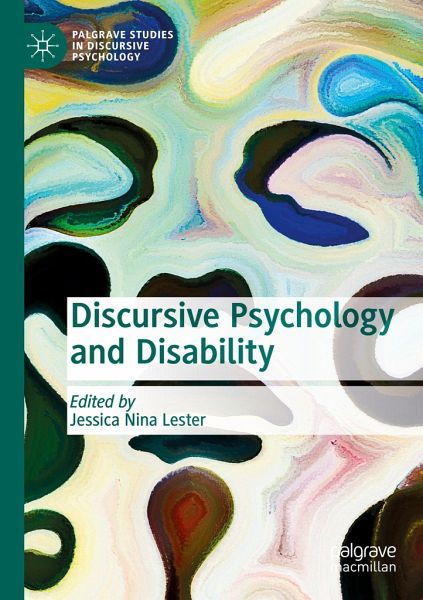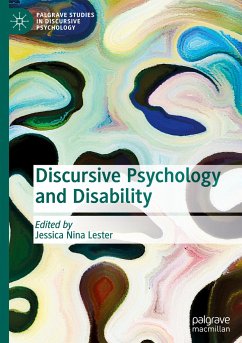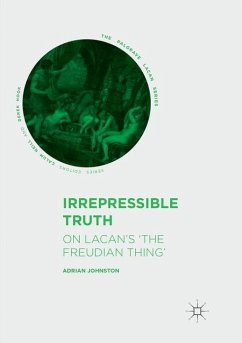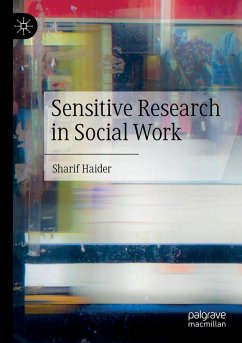
Discursive Psychology and Disability
Versandkostenfrei!
Versandfertig in 6-10 Tagen
121,99 €
inkl. MwSt.

PAYBACK Punkte
61 °P sammeln!
This book explores how discursive psychology (DP) research can be applied to disability and the everyday and institutional constructions of bodymind differences. Bringing together both theoretical and empirical work, it illustrates how DP might be leveraged to make visible nuanced understandings of disability and difference writ large. The authors argue that DP can attend to how such realities are made relevant, dealt with, and negotiated within social practices in the study of disability. They contend that DP can be used to unearth the nuanced and frequently taken for granted ways in which di...
This book explores how discursive psychology (DP) research can be applied to disability and the everyday and institutional constructions of bodymind differences. Bringing together both theoretical and empirical work, it illustrates how DP might be leveraged to make visible nuanced understandings of disability and difference writ large. The authors argue that DP can attend to how such realities are made relevant, dealt with, and negotiated within social practices in the study of disability. They contend that DP can be used to unearth the nuanced and frequently taken for granted ways in which disability is made real in both everyday and institutional talk, and can highlight the very ways in which differences are embodied in social practices - specifically at the level of talk and text.
This book demonstrates that rather than simply staying at the level of theory, DP scholars can make visible the actual means by which disabilities and differences more broadly aremade real, resisted, contested, and negotiated in everyday social actions. This book aims to expand conceptions of disability and to deepen the - at present, primarily theoretical - critiques of medicalization.
This book demonstrates that rather than simply staying at the level of theory, DP scholars can make visible the actual means by which disabilities and differences more broadly aremade real, resisted, contested, and negotiated in everyday social actions. This book aims to expand conceptions of disability and to deepen the - at present, primarily theoretical - critiques of medicalization.














